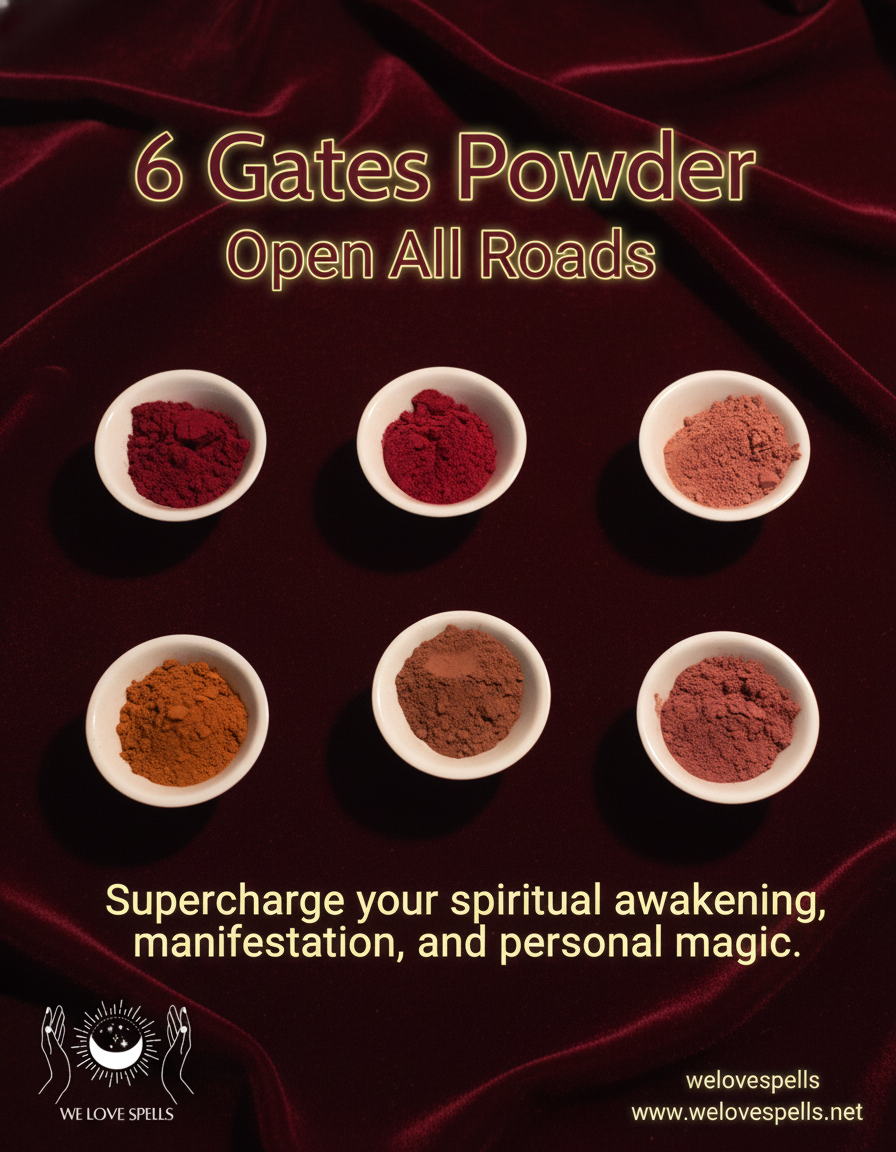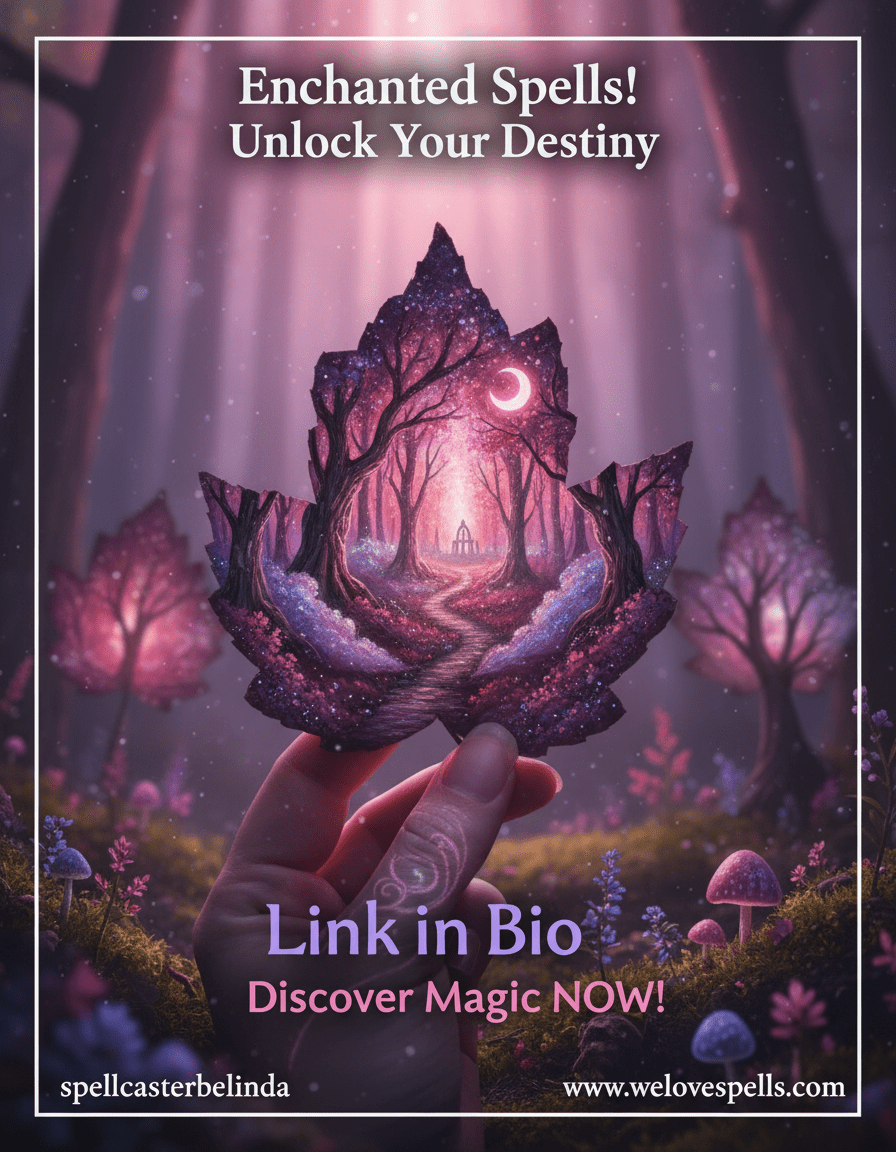Are Obsession Spells Ethical?
You weigh the potential benefits against the ethical implications, the allure of obsession spells against the respect for individual autonomy. It's a complex issue that has ancient roots in love magic but poses modern moral questions. Can you justify using a spell that might manipulate someone's free will, or should you prioritize respect and genuine connection? The line between desire and control blurs, and you're left wondering about the consequences of tampering with emotions. As you explore the cultural and ethical dimensions, you'll find that this topic isn't just about magic—it's about the very nature of love itself.
Historical Background of Obsession Spells

Obsession spells have been around for centuries, deeply rooted in ancient love magic practices where they were used to manipulate feelings of attraction or attachment. In ancient Greece, these spells were known as Eros spells, often employed by men to stir lust and passion in women.
This gendered application of love magic highlights a historical pattern where obsession spells served as tools to exert control over another's emotions and desires. The spells aimed to create a magnetic attraction, making the target constantly think about the requester.
You can trace these practices back to historical texts like the Greek Magical Papyri, which document spells specifically designed to create obsessive feelings. These spells often disregarded the autonomy of the individual targeted, reflecting a broader cultural acceptance of manipulation in love magic.
The use of such spells wasn't without consequences; women, especially those marginalized, were frequently accused of employing them, leading to stigmatization and persecution.
Over time, the perception of obsession spells has shifted. While they were once a common element in love magic, today they're widely viewed as unethical.
This evolution in understanding emphasizes the complex interplay between historical practices and contemporary ethical standards, underscoring the need to reflect on the implications of manipulation within love magic.
Consent and Moral Concerns
Magic, particularly in the domain of love, often faces ethical scrutiny due to its potential to intrude upon personal autonomy. Obsession spells, a subset of love spells, are particularly controversial. They manipulate an individual's feelings without their consent, compromising personal autonomy and potentially causing emotional harm.
Many contemporary views, especially within Neopagan communities, discourage these spells because they infringe on free will. Instead of fostering genuine connection, obsession spells often create coercive dynamics. Additionally, these spells are often marketed as customizable spells tailored to individual needs, which raises further ethical questions when considering the lack of consent involved.
Consider the following ethical concerns:
- Violation of Consent: Obsession spells disregard the target's right to choose their own emotions and relationships, leading to ethical breaches.
- Emotional Harm: The targeted individual may experience psychological distress, as these spells can create unnatural emotional states.
- Reinforcement of Negative Stereotypes: Historically, these spells have contributed to harmful stereotypes about manipulation, especially regarding women's sexuality.
Ethical spellcasting emphasizes the importance of consent and self-empowerment rather than controlling others. When you engage with love spells, it's essential to prioritize these values to avoid causing harm.
Cultural Perspectives on Ethics

When you explore cultural perspectives on obsession spells, you'll notice a vast array of ethical norms shaping their use.
In some traditions, such practices are deemed manipulative, infringing on personal autonomy, while others see them as valid expressions of personal agency.
Additionally, the use of white magic in unconditional love spells highlights how intentions and practices can vary widely across cultures, with some emphasizing positive energies and ethical boundaries.
Understanding these differences requires examining how each culture balances consent and power within magical practices.
Ethical Norms Across Cultures
Ethical norms regarding the use of obsession spells vary widely across different cultures. In some societies, such spells are seen as manipulative and harmful, clashing with the Ethics of Love, which prioritize mutual respect and genuine affection.
Others might view them as acceptable if the intention is pure, reflecting the complex interplay between love and desire. For example, many Indigenous and ancient cultures focus on the practitioner's intention and their relationship with the target to determine whether such a spell is ethical. This highlights the intricate balance between cultural beliefs and ethical standards.
Consider these cultural perspectives:
- Indigenous and Ancient Cultures: The intent behind the spell and relational dynamics are significant in its ethical evaluation.
- Modern Pagan Communities: They often emphasize consent, labeling obsession spells unethical due to their impact on personal autonomy.
- Historical Societies (Greece and Rome): These cultures had mixed views on love spells, showcasing a nuanced understanding of love and ethics.
Cross-cultural perspectives make it clear that what's considered ethical in one culture might be frowned upon in another. Understanding these differences is essential when discussing the Ethics of Love in the context of obsession spells.
Consent in Magical Practices
Understanding consent in magical practices is essential, especially when discussing obsession spells. Consent is a cornerstone of ethical spellcasting, underscoring the importance of mutual agreement. Historically, love magic often involved manipulating emotions without consent, prompting ethical debates across various cultures. These practices raise questions about the morality of influencing someone's feelings without their permission.
In contemporary magical communities, particularly within Neopaganism, there's a growing emphasis on ethical approaches. Many practitioners actively discourage spells that manipulate others, advocating instead for respecting individual autonomy and securing consent. This shift highlights a broader awareness of the potential psychological consequences for both the spellcaster and the target. The discussion about obsession spells encourages reflection on the ethics of influence.
| Cultural Viewpoint | Ethical Stance | Impact of Non-Consent |
|---|---|---|
| Historical Love Magic | Manipulation without consent | Moral and cultural questions |
| Neopaganism | Respect for autonomy and consent | Psychological impact awareness |
| Traditional Beliefs | Non-consensual seen as harmful | Balance and respect principles |
Cultural beliefs on spellcasting ethics vary, with some traditions viewing non-consensual magic as inherently harmful. Emphasizing consent aligns with maintaining balance and respect, core principles in many magical practices. Understanding these perspectives enriches the discussion on the ethicality of obsession spells.
Consequences of Manipulative Magic
When you use obsession spells, you're crossing ethical boundaries by manipulating someone's personal autonomy.
These spells can cause emotional turmoil, leaving both the caster and the target trapped in a cycle of false feelings rather than genuine love.
As you consider the impact on personal freedom, remember that prioritizing consent and respect is key to ethical magic practice.
Ethical Boundaries of Spells
In the domain of magic, obsession spells starkly highlight the ethical boundaries practitioners must navigate. These spells, often tied to the concept of love, can dangerously blur lines between genuine emotion and forced fixation.
When you attempt to manipulate someone's feelings through magic, you're not only breaching ethical principles but also risking emotional harm. Historically, many cultures have approached love spells with caution, understanding their potential to cause more suffering than happiness.
From an ethical standpoint, several points demand attention:
- Consent: Using obsession spells often lacks the target's explicit agreement, raising significant ethical concerns. Consent is a core principle that shouldn't be ignored.
- Intent: In many witchcraft traditions, the intent behind a spell is vital. If your goal is to control or manipulate, you risk facing negative karmic repercussions.
- Alternative Approaches: Modern magical practices emphasize self-empowerment and personal growth. Instead of relying on manipulation, focus on fostering genuine connections based on mutual attraction and respect.
Ultimately, obsession spells challenge practitioners to reflect on their actions' ethical implications, highlighting the importance of respecting free will and promoting authentic relationships.
Impact on Personal Autonomy
Obsession spells infringe on personal autonomy by overriding an individual's ability to freely choose their feelings and actions. When you use magic to make a specific person obsess over someone, you're effectively stripping them of their free will. This manipulation turns what should be a natural emotional connection into a forced and unnatural bond.
You might think that directing someone's affections toward a specific person is harmless, but it disregards the essential principles of consent and mutual attraction. Manipulating emotions through magic isn't fostering genuine relationships; it's creating a facade.
The lack of authenticity in these relationships can lead to unhealthy dynamics and emotional harm. Imagine being the target of such a spell—you might feel an intense fixation without understanding why, leading to confusion and psychological distress. On the flip side, casting the spell could burden you with guilt and ethical dilemmas.
Witchcraft traditions, such as the Wiccan Rede, emphasize "harm none," cautioning against any practice that could infringe upon another's autonomy. Obsession spells often violate this principle by imposing unwanted feelings on a specific person, highlighting the ethical risks of manipulative magic.
Ultimately, the power to choose should remain with the individual, not the spell.
Emotional Repercussions in Magic
Magic that manipulates emotions brings significant emotional repercussions. When you use obsession spells on specific people, you're inviting a host of negative consequences. These spells can create anxiety, possessiveness, and a profound loss of autonomy for those targeted.
Imagine being stripped of your ability to make independent emotional choices—it's a deeply unsettling thought. The ethical concerns here are immense, particularly because these spells often ignore the principle of consent, leaving individuals with long-lasting psychological scars.
Consider the following repercussions:
- Emotional Dependency: The target may develop an unhealthy reliance on the caster, leading to imbalanced power dynamics in relationships.
- Psychological Turmoil: Both the caster and the target might experience emotional distress, resentment, and turmoil as a result of this forced fixation.
- Loss of Agency: The victim's inability to act freely due to manipulation leads to a diminished sense of self-worth and autonomy.
Historical accounts reveal that obsession spells have rarely ended well, resulting in chaos and emotional pain for everyone involved.
Many contemporary magical traditions emphasize ethics and discourage these spells due to their potential for harm. Always prioritize consent and autonomy when considering any magical practice.
Alternatives to Obsession Spells

Exploring healthier alternatives to obsession spells opens up a world of positive energy and self-improvement. One powerful option is self-love spells. These rituals focus on boosting your self-esteem and confidence, making you more attractive to others naturally. By enhancing your self-worth, you draw love to yourself from a place of security rather than manipulation.
Manifestation techniques, like visualization and affirmations, can effectively shift your energy toward attracting the right relationships. Instead of forcing someone to feel a certain way, you align yourself with the love you desire through positive thoughts and intentions.
Relationship enhancement spells are another great alternative. They aim to strengthen existing bonds, improve communication, and foster mutual respect between partners, helping you build a healthier connection.
Consider using divination practices, such as tarot or oracle readings, to gain insights into your romantic life. These tools can guide you toward making better relationship choices.
Practicing gratitude and mindfulness can also create a positive emotional environment. By focusing on the good in your life, you naturally attract love without relying on coercive spells.
These alternatives not only empower you but also cultivate genuine relationships based on mutual affection and respect.
Community Views on Love Magic
While considering alternatives to obsession spells, it's important to recognize how diverse community views shape the broader conversation about love magic. Many practitioners stress consent and ethical considerations, especially when casting a spell on a specific person.
The rise of neopaganism and modern witchcraft has amplified these discussions, with many voices advocating against manipulative practices. Online forums are vibrant spaces where people share their experiences, shedding light on the psychological impacts of obsession spells.
Here, you find a range of opinions:
- Ethical Concerns: Many practitioners argue that using a spell on a specific person without their consent can infringe on autonomy and harm the target.
- Empowering vs. Dangerous: Some view love spells as empowering tools for self-expression, while others see them as potentially dangerous.
- Shift in Preferences: There's a growing trend toward spells that foster self-love and mutual attraction, avoiding coercion.
Cultural perceptions also play a significant role. In some communities, love spells are celebrated as a means of empowerment, while others caution against their use.
As you navigate these diverse views, it's essential to weigh ethical dilemmas and prioritize practices that honor mutual consent and respect.
Frequently Asked Questions
How Does a Magic Spell Work?
You focus your intention and channel energy through symbolic actions and materials. Use ingredients like candles and herbs, align with lunar phases, and personalize with colors and symbols. This alignment helps manifest your desired outcome through the spell.
Conclusion
When you consider the ethical implications of obsession spells, it's clear they undermine consent and autonomy. Throughout history, these spells have been used to manipulate, often causing emotional harm and unhealthy relationships. Culturally, the consensus leans towards respecting free will and promoting healthier connections. Instead of coercion, you should explore alternatives like self-love and genuine relationships, which foster positive emotional environments. Ultimately, love magic should prioritize mutual respect and authentic bonds, not control or manipulation.



